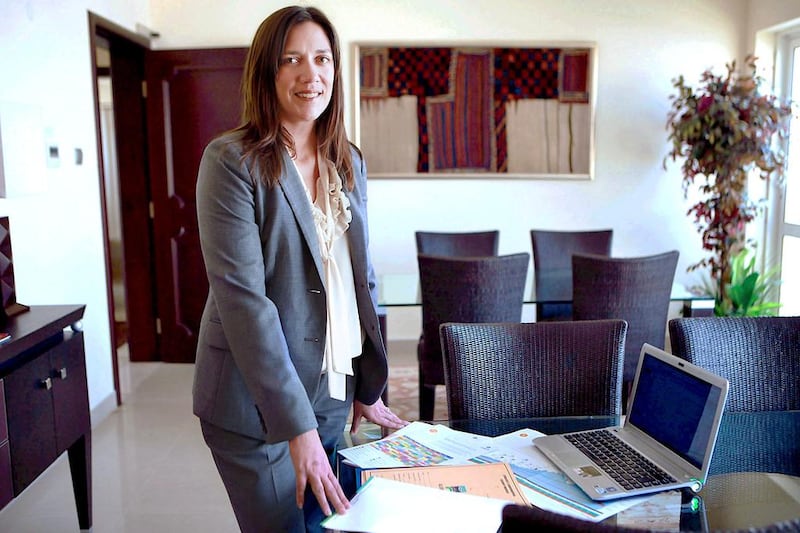Like any financial adviser, Caroline Domanska aims to help her clients achieve healthier bank balances. But as well as being a senior wealth manager for Globaleye, dishing out advice on where to invest, Ms Domanska is also a “money coach” offering private sessions without the sales pitch.
Money coaching is an increasingly popular field in western countries, but is relatively new to the UAE.
“It’s a form of life coaching with a focus on trying to understand your relationship with money,” Ms Domanska explains. “My coaching clients want to feel more empowered about the financial decisions they make.”
Ms Domanska qualified as a financial adviser in 2000 and moved to Abu Dhabi eight years later. These days, however, the 38-year-old commutes to clients in Dubai and Abu Dhabi from her home in Sandhurst, in the UK.
“I always found myself asking my clients: ‘You keep saying you’re watching your savings but its not translating into action. So what’s happening underneath the hood?’ I started thinking: Wouldn’t it be great if we could have a conversation about money without the sales agenda?”
Unlike her financial advisory role, which is commission based, she charges Dh750 for her first 120-minute money coaching session, and Dh500 for subsequent sessions.
In January, Ms Domanska completed her postgraduate degree in business and personal coaching and trained with the UK-based money coach Simonne Gnessen. She learnt how people’s relationships with money can be fine tuned by delving into their childhoods.
“As children, we’re often told we can’t have something, rather than: ‘how are you going to go about trying to get it?’ It’s a subtle shift in how you approach money,” she explains.
“I had a client in London – a big earner without much to show for it. He was about to get married and wanted to be more financially responsible. He recalled how as a child, he used to put his pocket money away in a bank account to buy a bike. When he thought he’d saved enough, he asked his dad for the money – but his dad had used it to buy new school shoes. At that point, he thought ‘what’s the point of ever saving?’ I’ve heard many stories like that.”
Ms Domanska, who will host a British Business Group workshop in Abu Dhabi’s Shangri La Hotel next Monday on how to break your income ceiling, also uses “neuroscience with a positive psychology blend” to work out where her client’s strengths lie and help them build up their business acumen.
“People go binge shopping in the same way as others might binge eat. If you’re going into debt as a result, what are the emotions at the crux of that? It could be ‘I’m not good enough’.”
The consultant calls her coaching style ‘conscious spending methodology’ and says those whose spending is out of control should watch out for habitual triggers.
“Some people might pass the same cash machine on the way to work and take out Dh500. I suggest withdrawing Dh300 instead and only going on Thursdays. Other spending impulses might be more situational, so we go through different scenarios to work out what things they’re saying yes to when they could be saying no.”
Here in the UAE, salaries haven't been rising as quickly as the cost of living. Inflation in Abu Dhabi remained at a six-year high for the second consecutive month in April with prices rising 5.3 per cent year-on-year. Abu Dhabi rents rose by 12 per cent last year and a further 2 per cent in the first three months of the year, according to property broker CBRE. But since 2010 the average budgeted salary increase has been about 5 per cent per year, according to Mercer, the global human resource consulting firm.
However, Ms Domanska says too many expats use the data as an excuse not to save. “They come to the UAE with grand ideas, thinking the money they earn will pay off the mortgage, but they get sucked into the lifestyle. I often hear people say, ‘I couldn’t possibly save because the school fees are so much now’, but there’s always a way to save, even if its just Dh100 a month in a jar”.
business@thenational.ae
Follow The National's Business section on Twitter





